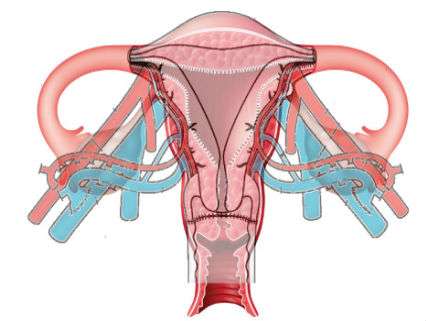First U.S. Uterus Transplant - Bioethicists Wring Hands
Why should not men be eligible for uterine transplants?

Cleveland Clinic announced the first uterine transplant surgery in the United States. Nine such transplants have taken place in Sweden, of which seven have been successful and from which five infants have so far been born. The Cleveland Clinic transplant is part of research project involving ten women who were born without uteruses. A Texas woman, age 26, was the first patient to receive a donated uterus. Some months from now, using IVF techniques, eggs taken from her ovaries will be mixed with sperm from her husband and then transferred into the transplanted womb. Once she has completed her childbearing, the transplanted womb will be removed and she will no longer need to take anti-rejection medications.
Although the Cleveland Clinic's institutional review board ruled that the surgery is ethical, some bioethicists are not pleased. Bioethicists Josephine Johnson and Eric Trump argue …
…the wholly understandable desire to bear a child does not justify the significant risks to mother and fetus posed by uterine transplants, not to mention the enormous financial cost. Safer, less costly, and more certain ways to have children already exist. When it comes to uterine factor infertility, we must ask ourselves: What is more important, the experience of pregnancy or the health of a woman and her future child?
They point out the risks of transplant rejection, infection, blood clots and that two transplants in Sweden had to be removed before the women had a chance to become pregnant. In addition, the process involves at least three surgeries; one to transplant; a cesarean section to deliver the baby; and the eventual removal of the donated uterus. They note that four of the births from the donated Swedish uteruses were premature. These caveats notwithstanding, women generally are (and should be) permitted to take all kinds of risks with their pregnancies without interference from bioethical busybodies.
Still, Johson and Trump make the observation that surrogacy is an option for women who wish rear genetic offspring:
Surrogacy can be legally, ethically, and emotionally complex. But it is clearly safer for both mother and child than pregnancy following a uterine transplant. Surrogates are generally healthy women who have successfully given birth already. The risks to the surrogate and the child are those usually associated with normal pregnancy and birth.
That does not sound unreasonable, but, of course, surrogacy is illegal in many countries, e.g., Sweden, and some activists now want to ban surrogacy everywhere.
A final note: Tranplants of other solid organs between genders take place all of the time. So it has to be asked: Why should men not be eligible for uterine transplants?


Show Comments (65)